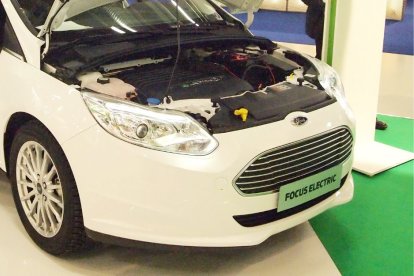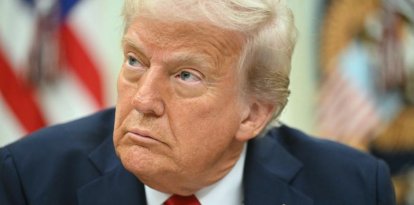Ford forecasts $4.5 billion loss on electric vehicle production
The factory announced the economic impact of $2.8 billion in the first six months of the year derived from the investment in its Ford Model e division.

(Wikimedia Commons)
Electric vehicle (EV) production has caused multi-billion dollar damage to one of the world's largest manufacturers. Ford Motor Company announced a year-to-date loss of $2.8 billion - including the $1.8 billion it lost in the second quarter - from its electric division called Ford Model e. Or, in other words, about $32,000 for each of these supposedly less polluting models. It sold only 61,575 EVs.
As indicated in its 2023 financial results report, the Michigan-based multinational indicated that it expects much higher total losses in the current fiscal year. "To be a loss of about $4.5 billion for Ford Model e, reflecting the pricing environment, disciplined investments in new products and capacity, and other costs," it said in a statement.
A failed bet for the moment
With the $2.8 billion they already lost in the first six months of the year, Ford Motor Company is on the verge of matching their forecasts. Following the March balance sheet, the factory projected total losses of $3 billion with electric vehicle production in all of 2023. Being very close to that forecast, they have had to increase this estimate.
The manufacturer's commitment to EV production is not paying off. "The near-term pace of EV adoption will be a little slower than expected, which is going to benefit early movers like Ford. EV customers are brand loyal and we’re winning lots of them with our high-volume, first-generation products; we’re making smart investments in capabilities and capacity around the world; and, while others are trying to catch up, we have a clean-sheet, next-generation products in advanced development that will blow people away," said Jim Farley, CEO of Ford Motor Company.
Hybrid model, the solution for Ford?
"You’re going to see a lot more hybrid systems from us." This seems to be Farley's solution to counteract the economic decline resulting from the drive towards "sustainable" vehicle production, as defined by numerous international organizations -such as the United Nations-, leaders -such as President Joe Biden, who wants EVs to be "sustainable" in the long term and account for 67% of the sector by 2032- and, even, people and entities related to the motor world.
In fact, the CEO said Ford Motor Company is "frankly surprised" by how the market performed with two of its hybrid models, the F-150 and Maverick. "We’re seeing a lot of customers like that combination of using the batteries for something beyond just moving the vehicle. And so we’re just listening to the market," Farley noted. "What the customer really likes is when we take a hybrid system that’s more efficient for certain duty cycles, and then we add new capabilities because of the batteries."
Million-dollar losses are not the only problem for EVs
Focusing more on these models in general and not just in the case of Ford Motor Company, electric vehicles are causing other serious problems. For example, according to an analysis by the British Automobile Association (AA), new maximum charges at electric vehicle charging points may result in drivers paying more to charge their electric cars than they would for refueling with a gasoline engine.
Another is the reported fires of batteries in the electric models, which are increasing. Problems that make citizens strongly oppose the purchase of an EV as we can see in this link.
RECOMMENDATION





















